Srinagar, 05 Dzulqa’dah 1437/08 August 2016 (MINA) – Outside the grand mosque in the sensitive Nowhatta area of Srinagar, an old couple is stopped by a CRPF jawan. “Where are you going? It’s curfew.” The old man pulls out a prescription from his pocket as his wife looks on. “It’s for a medical reason. Please let us go,” he begs. The jawan eventually relents.
Few kilometers away, on another day, a 30-year-old press photographer’s two-wheeler is stopped by an irate mob which wants to ensure the shutdown called by separatists is followed.
“Whoever you are, journalist or not, go back home,” a protestor in his early twenties tells him, while another punctures the bike’s tyres.
In the last 30 days, since militant commander Burhan Wani was killed in an encounter, Srinagar has been caught between a curfew imposed by authorities – to maintain law and order – and the call for shutdown – as a means of protest – by separatists.
Also Read: Former Iranian Diplomat Says Afghan Migrants Not Linked to ‘Enemy Spies’
Between the two, and at least 56 deaths later, normal life in Srinagar and elsewhere in the Valley has been in disarray. Srinagar has turned into a garrison town with frequent clashes between stone throwing protesters and security forces.
If found out on the streets, anyone can be pulled up Central Reserve Police Force (CRPF)?or police personnel for violating curfew.
“The government crackdown on civilians occurred right after Burhan Wani’s death. Since then, people have not been able to even get out and meet community members and discuss the ongoing crisis. Many people wanting to go to hospitals to help the injured weren’t allowed to move. Moreover, people could not communicate with each other because of the clampdown on phone services,” said Irfan Mehraj, a social activist who lives in the sensitive old city area of Srinagar.
A journalist from the old city area said, “I fear two things as I come out for work. First, confrontation with a jawan and second, getting caught in a clash between stone pelters and the forces.”
Also Read: “Rohingya Youth Killed by Landmine While Delivering Food to AA Militants”
Grocery stores, vegetable shops and petrol pumps usually remain shuttered throughout the day, only to open clandestinely at unearthly hours – late nights or early mornings. In some areas where shopkeepers dared to open during the day, they had to face the wrath of ‘motorcycle gangs’ – youth who came on bikes and forced them to shut down.
The victims of curfew and shutdowns
Also Read: Iran’s Defense Minister Visits China Amidst Ceasefire
The salaried class have not been hit that hard by the current unrest, but the economy has been badly affected with losses for businesses, shops and the tourism sector estimated to be huge.
Mushtaq Ahmad Wani, president of the Kashmir chamber of commerce and industry said that for most businessmen shutting down shop this time is a way of protest against the killings of civilians and the use of pellet guns by security forces.
According to Wani, businessmen have downed their shutters regardless of losses.
But despite the shutdown, families that Hindustan Times spoke to said that the supplies of essentials were not affected because the small grocery stores in the narrow alleys opened regularly and also because Kashmiris have a habit of stocking up basic food items keeping in mind the frequent lockdowns and inclement weather. They added that people in the villages have a steady supply of rice and vegetables.
Also Read: Pancasila and Religious Diplomacy Offer Global Solution for Diverse Societies: Minister of Religious
Petrol was sold in the black market in the initial days of the shutdown, but gradually some fuel station owners began opening their stations after midnight or whenever the separatists called for ‘relaxation’.
Journalists move around on government-issued ‘curfew passes’.
Srinagar’s streets have mostly been deserted. Walls have become a canvass for anti-India graffiti. And without tourists, the Dal Lake has been quiet with the shikaras moored at the jetties.
The curfew and shutdowns have taken a toll on weddings with hundreds of them cancelled. Families with relatives in south Kashmir where communication remained completely snapped for 18 days from July 8, spent sleepless nights worrying about their kin. (T/R07/R01)
Also Read: Hajj Return Reminder, Zamzam Water Not Allowed in Cabin Luggage
Mi’raj Islamic News Agency (MINA)





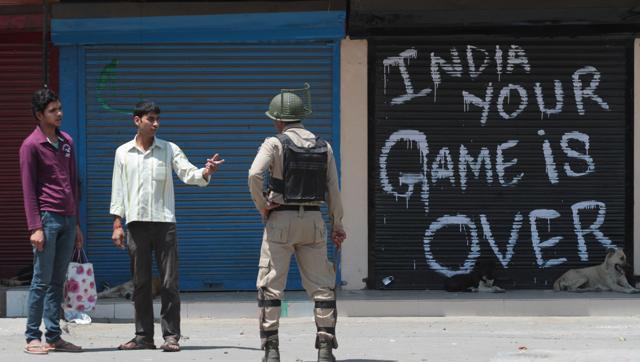



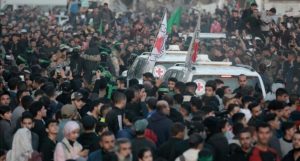
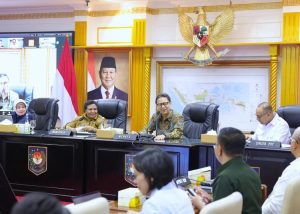

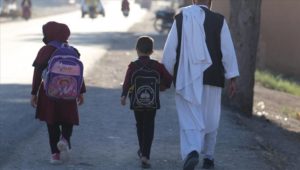
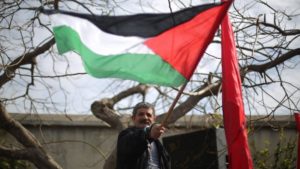
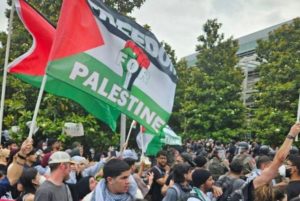
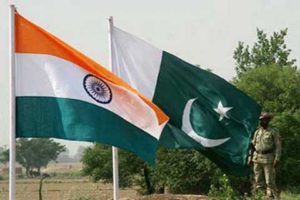
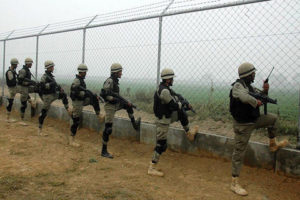
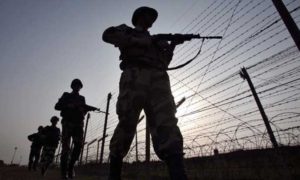
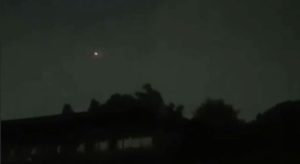
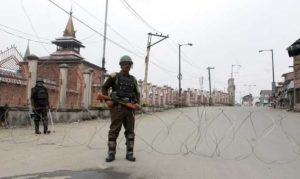






 Mina Indonesia
Mina Indonesia Mina Arabic
Mina Arabic